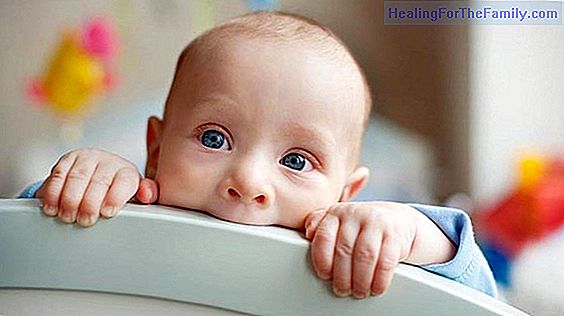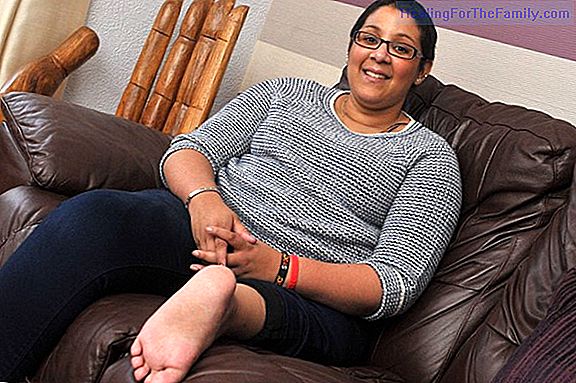Children who behave well at school and poorly at home
It is very common for our son to behave "badly" at home: answer, do not obey, etc. On the other hand, in other contexts outside of the family environment, the wonders of the little one speak to us: he is educated and respectful. As we already know, depending on the context in which children interact
It is very common for our son to behave "badly" at home: answer, do not obey, etc. On the other hand, in other contexts outside of the family environment, the wonders of the little one speak to us: he is educated and respectful.
As we already know, depending on the context in which children interact, their way of interacting with adults and their peers may vary. The great capacity of observation that children have helps them to understand very well how they have to behave with the different people and contexts with which they interact. Thus, it can happen that, children who behave well at school, behave badly at home, what to do in these cases?
Why children who behave well at school behave badly at home

It is more normal than we can imagine to see this duality of children's behavior in different contexts. When there is a challenging behavior, there is frustration in the child or is aggressive both verbally and physically at home but not in other environments such as at school the causes of why these behaviors have to be evaluated. In doing so, the age and developmental stage of the child's development must be taken into account. A - Sometimes, it happens because
in the school the rules are clearer and the consequences have been established for when they do not do what corresponds ; while at home it is not like that. In other words, "not strict" limits are given at home. Neither constant nor consistent. Permissiveness, lack of authority and long time alone children can be some of the causes. In this case, the child learns to keep his "bad behavior" in the inconsistency of guidelines at home, sure that in the end, his parents will give in to their wishes. Otras - Other times the opposite may happen, that is,at home you are too strict, demanding or inflexible with children, las and such high expectations can generate that bad behavior. You may feel less pressure at school.
- It may also be that they are making a wake-up call . It can occur especially when you have several children, so parents should be equitable with everyone, give them the same opportunities and understand their emotional needs and give them love individually. If this exclusivity does not exist, children will seek attention even if it is negative, in the end children achieve their goal: that their parents stop doing anything to go and scold them. What to do if the child behaves badly at home and well out
The first thing parents have to do before acting impulsively is to stop and think andfind the causes
that make their children behave differently in different contexts . Once the causes have been focused ...
- It is important to reach a consensus at home on what limits (better if they are few and clear) are considered important and to develop a 'strategy' common to all members and caregivers of the family , that can be implemented in a consistent and firm at home to show the child that their behavior must adapt to the rhythm of the family. También - It is also significant that r
receive more attention in positive than in negative . That is, instead of punishing them when they do not behave well, explain that when they shout, hit or shout, you will not pay attention to them. And, on the other hand, when his behavior is correct, he will be by his side and attention will be paid to him. Finally, parents must be clear that if their children behave badly at home and well at school, it does not mean that it is their fault. This type of difficulty requires frequent consultations with the specialist.












